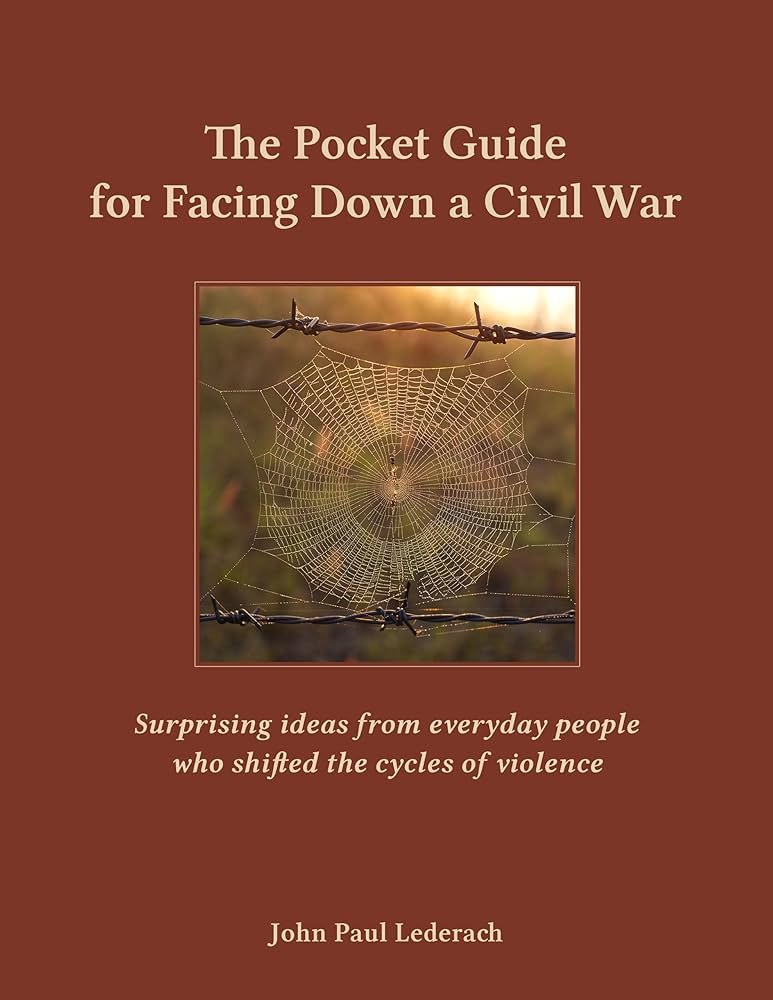When toxic polarization becomes a civil war – and what we can do about it
International peacebuilder, mediator and scholar John Paul Lederach offers practical wisdom for resisting cycles of division and violence before it's too late.
This week, Nonviolence Radio hears from John Paul Lederach, an international peace-builder, mediator and scholar. Stephanie, Michael and John Paul have a rich and wide-ranging conversation, one prominent theme is the power of pockets. This plays on the title of John Paul’s latest book: The Pocket Guide for Facing Down a Civil War. In it, he encourages us to remember that we all exist within various communities – pockets of the world – and that each pocket represents a unique perspective which is valuable to every other one:
…there is simultaneously this deep acknowledgment of the specificity of a context and this deep curiosity about what people have done or need to do.…people at a given location, at a given time, have a need to do something in response to what's happening. And in that innovation, their particular pocket, their particular place where they live, brings forward this kind of combination of resilience and resistance to the patterns that lead us toward violence
Only by engaging honestly and kindly with these different views can we create – like a work of art – a better, more peaceful world. One wonderful aspect of this pocket metaphor is that it empowers each and every one of us to make a difference. Even the smallest act of love (in the broadest sense of the word) – wherever one is – is an act of creation. Such simple, accessible actions when woven together re-humanize those we might be inclined to dismiss or degrade. Right from within our pockets, we can build alternatives to the toxic polarization we see so much of today.
It's about assuring the protection of the dignity of the people that I am most proximate with and live with, even if we are different. Then my responsibility is to help make sure that this neighborhood, this town, this area, is brought to a level of dignifying the humanity of the people who live here. And I think that's really a key driver to a lot of this. There's an element to this that I refer to as the principle of accessibility. I think one of the reasons that paralysis works, is a very powerful tool, is that people think they don't have access to the lever that will make a difference. But what if the principle of accessibility is that you have access to it?
Initiating change from within our pockets directly and immediately reveals the power inherent in treating each other as worthy. When we listen closely thereby recognizing the dignity of everyone, we can construct together a world that has space for all.
Transcript archived at Waging Nonviolence

